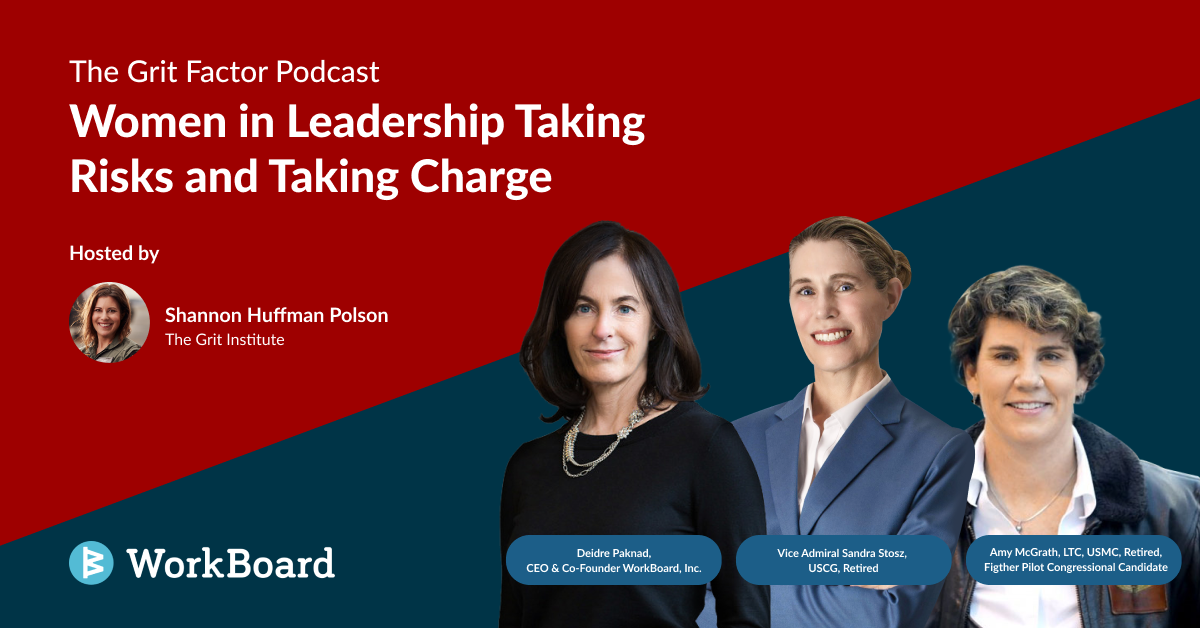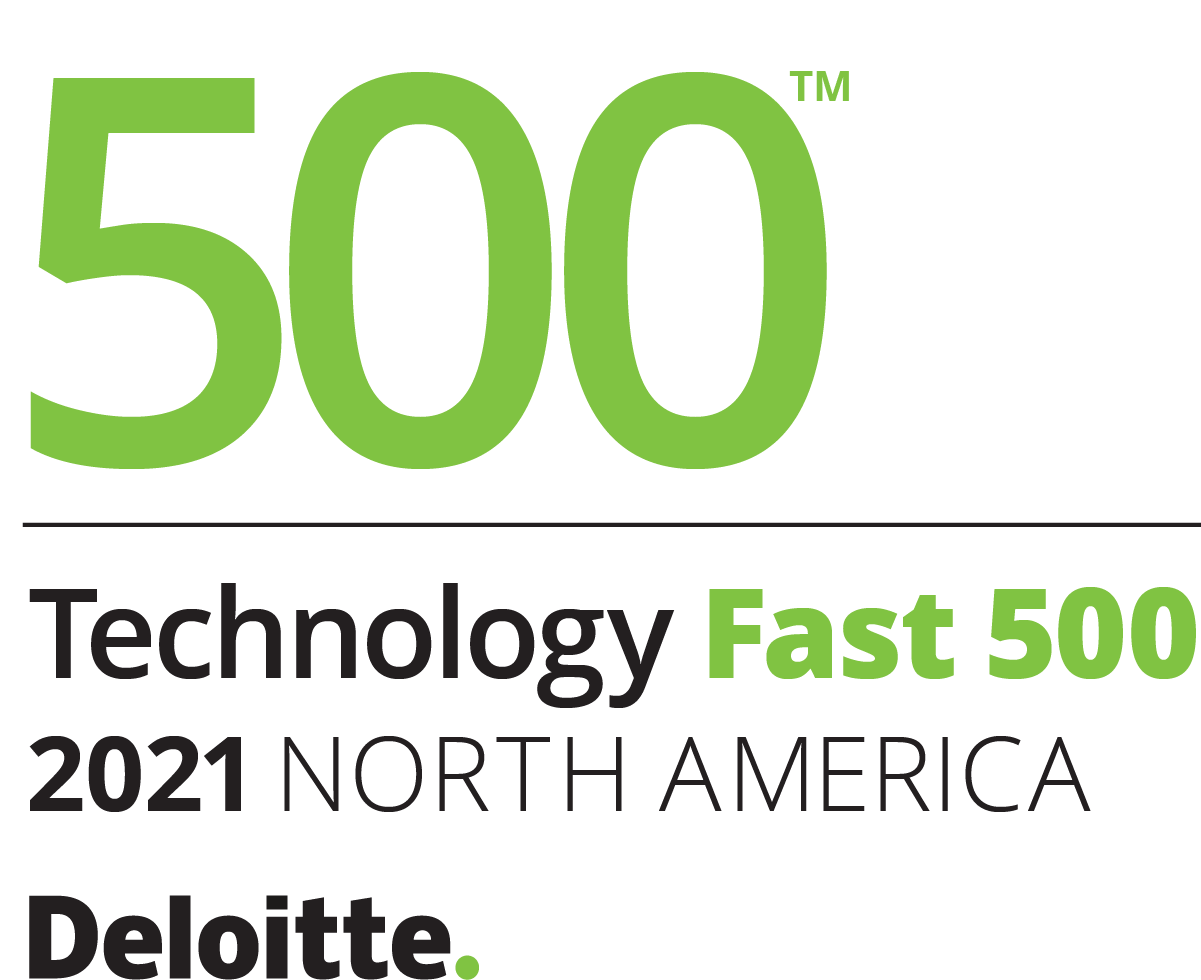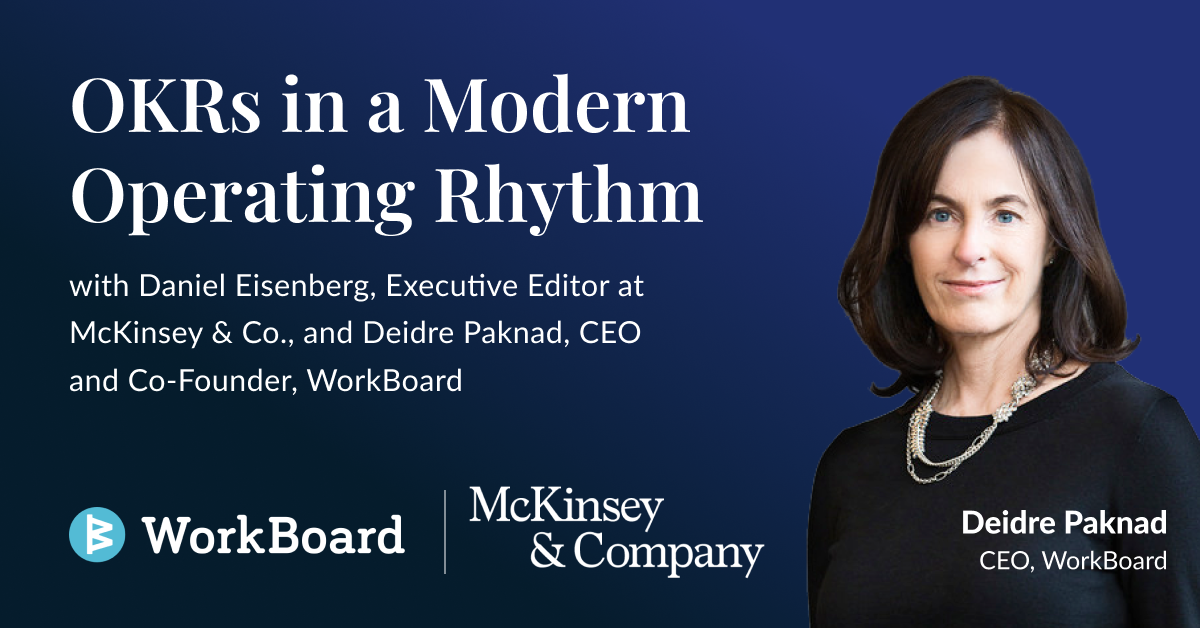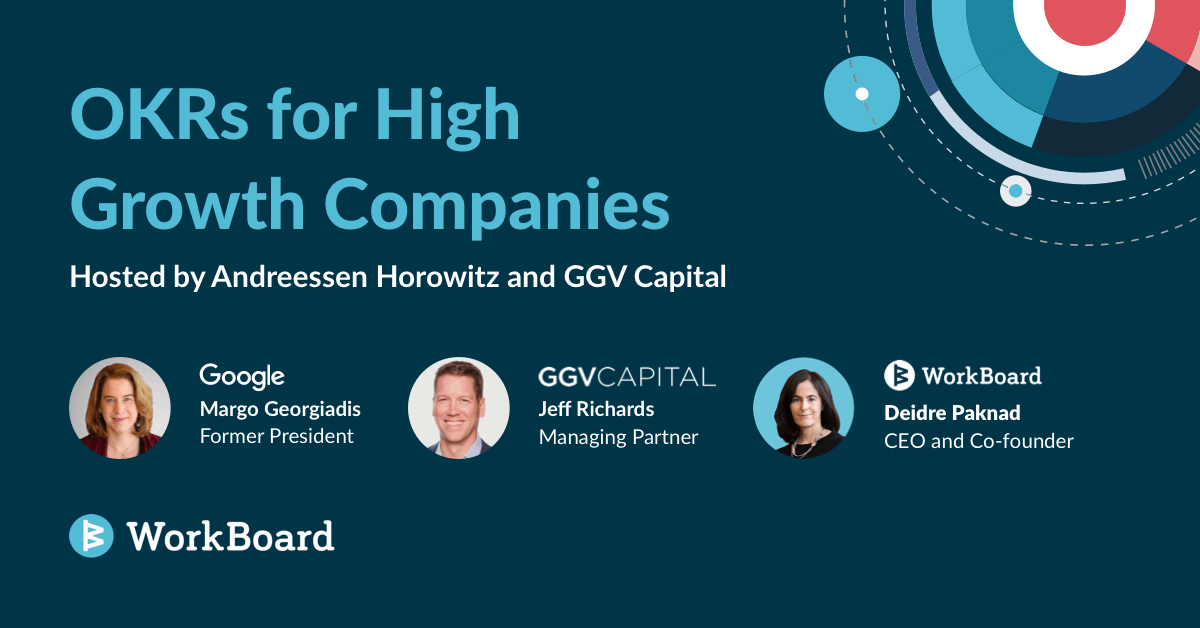
Throughout Women’s History Month we’ve heard so many inspiring stories honoring the women who have braved a path forward, paving the way for generations to come. The recent webinar hosted by The Grit Factor’s Shannon Huffman Polson, delivered three more stand-out stories from phenomenal female leaders who share how they create their own paths, take risks through uncertainty, and embrace the superpower of being different.
Each of these impressive women have forged an impressive list of firsts: Retired Lt. Colonel Amy McGrath,a retired US Marine Corp Lt. Colonel, who is the first woman to pilot a F18 in a combat mission; Sandra Stosz is a retired U.S. Coast Guard Vice Admiral who was the first female in nearly every assignment she held, and Deidre Paknad, founder of multiple Silicon Valley startups, and the CEO and Co-founder of WorkBoard, a Deloitte Fast 500™ company.
There’s not enough room here to include all the great insights they shared on The Grit Factor webinar, but we have you covered with some highlights.
You can also listen to the full conversation here: “Grit Factor: Women in Leadership Taking Risks and Taking Charge,” hosted by Shannon, founder of the Grit Institute and author of The Grit Factor.
Find Your Framework for Gauging Risk
It can be hard to have clarity during tumultuous times, but taking calculated risks is core to being a leader, Amy said. Even if Monday morning quarterbacks second-guess your choices, you still are the quarterback, she said. That means making decisions without knowing every possible outcome.
Few decisions are absolutely right or wrong, agreed Sandra, who vowed early in her career not to become paralyzed in over-analysis. For her, having 85% of the information is enough. “The key is to move forward to move your organization forward and not let it stay paralyzed.”
Without a framework for weighing risks, they all look equal, and therefore they all look equally overwhelming, Deidre said.
“It helps for leaders to have a clear mental model on how to evaluate risk and then use that to give their teams clarity and help them move forward.”
She suggests a model that assesses risks on two dimensions: the probability of something occurring and the impact if it does. “You want to focus on the high probability, high impact risks and you probably don’t need a lot of focus on those that are unlikely to occur and also those with low impact,” she said.
“The simple framework helps teams talk through where on the likelihood spectrum and where on the impact spectrum risks really are.”
It’s Important to Be Human
Remembering that we are all human can help leaders pull themselves and their teams through difficult times, said Amy, author of Honor Bound. “One of the things I've learned throughout the years is that even though I was a fighter pilot, and I worked with machines, the fundamental thing that brings us together, and what we do every day is all about that human aspect.”
To help maintain a human touch when everyone stopped coming into the office at the start of the pandemic, WorkBoard sent flowers weekly to the homes of every team member, and also offered a “safety net” of other resources, Deidre said.
The cumulative effect of everything that has happened during the last two years is exhausting for everyone and being isolated from family and friends created a “disconnection debt” that is important for leaders to recognize and acknowledge, she said.
“There is a big gaping hole in the joy of teaming and in our hearts as human beings who come together to do something with shared purpose.” Honor those low energy moments, and then create, celebrate and ride the high energy moments together, she said.
Balancing the physical, mental, emotional, and spiritual aspects of her life was key in helping her handle stress, said Sandra, who wrote in Breaking Ice and Breaking Glass about her experience of being the first female to serve in several posts throughout her career. “I was given very hard demanding assignments at every single step of the way up, as opposed to maybe my male counterparts were given one really hard assignment in their career, to get them positioned to make it to the top.”
Being Different is a Super Power
Despite the challenges of leading the way, all three encourage others to go for it.
“There are sectors, like the military and politics where we are not represented at the rate we should be,” Amy said. “A lot of that is because we aren't stepping up. So don't be afraid. We need your voice.”
The unique perspective you bring to whatever organization you join is valuable. “Recognize that it is a superpower to be different. Be yourself and believe in yourself,” said Sandra.
“Don't wait for other people to permission your dream,” said Deidre, who knows the energy it takes to overcome gender barriers. “Be the rising tide. Don’t wait for the rising tide to carry you up.”
Want to know more about where these leaders got their grit? Tune in to the Grit Factor. To learn more about how WorkBoard helps leading companies execute strategy faster with the people and resources they have, reach out.
Like it? Get more and share!









